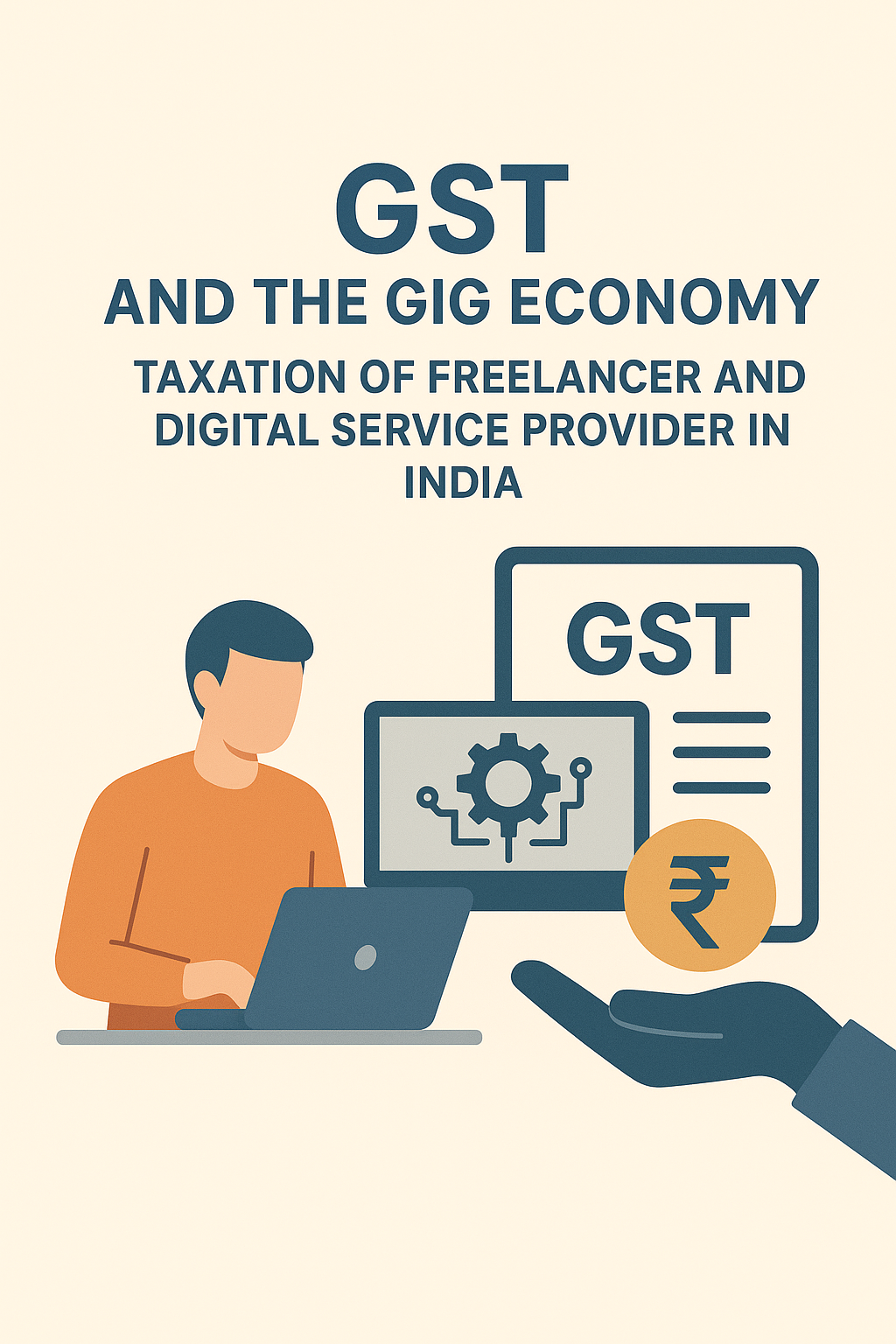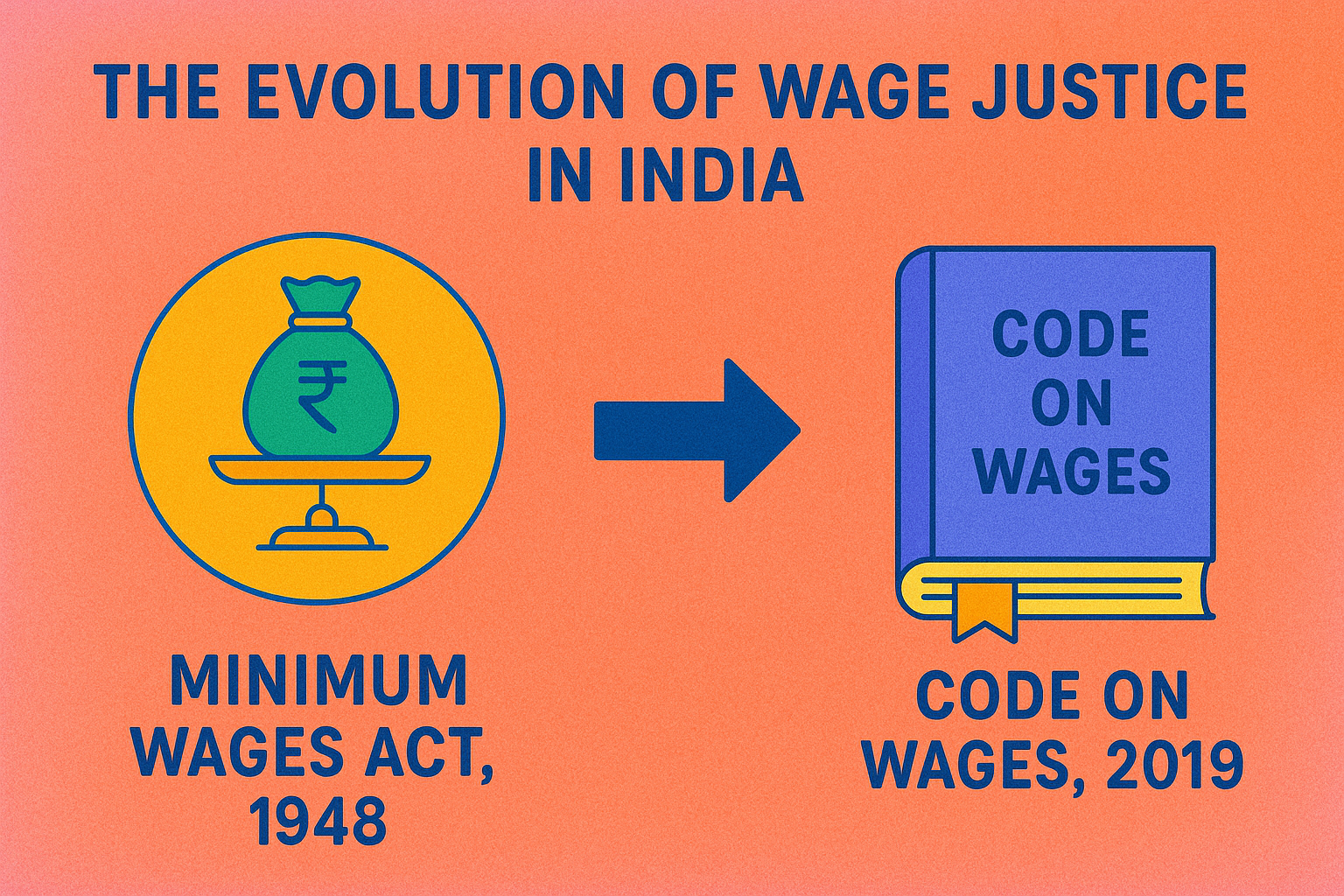
GST and the Gig Economy: Taxation of Freelancers and Digital
Service Providers in India
Introduction
Over the last few years, India’s gig economy has expanded at an unprecedented pace.
Freelancers offering design, content, and IT services on platforms such as Upwork and
Fiverr, and gig workers associated with Zomato, Swiggy, Ola, and Uber now form a
significant part of the workforce. This shift to flexible, platform-driven work has not only
changed the idea of employment but also created fresh challenges for India’s tax system.
The Goods and Services Tax (GST), introduced in 2017, was meant to streamline indirect
taxation. But applying it to freelancers and platform-based workers hasn’t been
straightforward. Should freelancers working with overseas clients be taxed? Do delivery
partners need GST registration? And who bears the burden when millions of small
transactions take place daily through apps? This blog unpacks how GST applies to the gig
economy, the compliance hurdles, and the reforms India urgently needs.
Who Falls Under GST in the Gig Economy?
The law does not use the term “gig worker” but instead categorizes them as suppliers of
services. Within this, there are two broad groups:
1. Freelancers: Individuals such as writers, developers, and consultants who provide
services independently, often to both Indian and foreign clients.
2. Platform Workers: Delivery partners, drivers, and others who provide services
through an app. Here, the law shifts liability to the platform operator itself in certain
cases.
This difference is key. A freelancer might be directly liable for GST once they cross the
turnover threshold, while a delivery partner working for a platform like Swiggy usually isn’t,
because the tax liability is placed on the platform.
GST Registration Rules
• Freelancers Registration is required if annual turnover exceeds ₹20 lakh (₹10 lakh in
special category states).
o If the freelancer provides services abroad, these can qualify as exports of
services, which are zero-rated. That means the service is not taxed, but the
freelancer can still claim a refund of input taxes.
• Gig Workers through Platforms:
o Under Section 9(5) of the CGST Act, platforms such as Uber, Ola, Zomato,
and Swiggy are directly responsible for paying GST on certain services.
o Individual drivers or delivery agents are not expected to register for GST for
their platform-related earnings.
Thus, freelancers and app-based workers face very different tax treatment under GST.
Cross-Border Freelancing and GST
The issue becomes trickier when freelancers deal with overseas clients. If an Indian
freelancer provides services to a U.S. or European client, the transaction can be treated as an
export of services — provided:
1. The supplier is in India.
2. The recipient is outside India.
3. Payment is received in convertible foreign exchange.
4. The service is not merely an intermediary service.
Such exports are zero-rated under the GST framework. Freelancers can export without
paying GST and claim refunds on input taxes, or they can pay GST and later claim it back.
While this sounds simple on paper, in practice, freelancers often face refund delays and
procedural hurdles that block their working capital.
Section 9(5): A Unique Provision for Gig Platforms
Section 9(5) shifts tax responsibility from individuals to the platforms in certain cases. The
logic is clear — it is far easier to collect taxes from large, organized companies than from
millions of scattered gig workers. Examples include:
• Ride-hailing: Uber and Ola must pay GST on passenger fares, not the drivers.
• Food delivery: Since 2022, Zomato and Swiggy are responsible for GST on
deliveries. Restaurants still pay GST for dine-in sales, but for online orders, the
liability lies with the platforms.
This model ensures tax collection without overburdening individual workers who may lack
the capacity for compliance.
Compliance Burden for Freelancers
Unlike platform workers, freelancers must manage GST compliance themselves. This
involves:
• Raising proper GST invoices with service codes.
• Filing monthly or quarterly GST returns.
• Maintaining digital and physical records of payments.
• Reconciling refunds for zero-rated export services.
In practice, many freelancers — especially those working with foreign clients — avoid
registering under GST if their income is below the threshold. However, those who cross the
limit often complain of complex paperwork and delayed refunds.
Judicial and Policy Developments
Courts and regulators have tried to address some of these grey areas:
• In 2021–22, the GST Council clarified that food delivery platforms are liable for
GST, not individual restaurants, in order to reduce leakage.
• Various Advance Rulings have confirmed that freelancers working with foreign
clients can claim export benefits, provided conditions are met.
• Disputes involving Amazon Seller Services and others highlight how burdensome
compliance can be when multiple registrations and Tax Collection at Source (TCS)
rules come into play. freelancers.
Global Approaches to Gig Economy Taxation
Other countries have also struggled with the same questions:
• European Union (EU): Platforms are often treated as “deemed suppliers” for VAT.
The 2021 VAT package introduced a One-Stop-Shop system to simplify compliance.
• United States: The South Dakota v. Wayfair (2018) ruling allowed states to impose
sales tax obligations on online sellers even without physical presence.
• OECD Guidelines: Recommend treating platforms as tax collectors in order to
strengthen compliance.
India’s approach under Section 9(5) closely mirrors these international models, but
compliance is still heavier than in many advanced economies.
Key Issues in India’s Framework
Despite progress, several problems persist:
• Refund Delays: Freelancers exporting services face long waits for refunds, locking
up funds they need for business.
• Frequent Changes: Circulars and notifications change often, creating confusion.
• Low Awareness: Many freelancers are unaware they even need to comply with GST
rules.
• Turnover Thresholds: The ₹20 lakh threshold may be too low for small freelancers
who occasionally work with foreign clients.
The Way Forward
To make GST truly compatible with the gig economy, a few reforms could help:
1. Simplified GST scheme for freelancers — with quarterly filing, lighter compliance,
and exemptions up to higher limits Centralized registration for gig platforms, avoiding the need for multiple state
registrations.
3. Tech-driven refund system to ensure timely release of blocked funds.
4. Awareness campaigns to educate freelancers on GST compliance, particularly for
cross-border transactions.
Conclusion
India’s gig economy is thriving, but taxation has not fully caught up. The GST framework has
made digital platforms liable for tax under Section 9(5), which is a practical move. However,
freelancers continue to face uncertainty, paperwork, and cash flow problems.
If India wants to nurture its digital workforce and position itself as a global hub for
freelancers, reforms are essential. A simplified, transparent, and technology-backed GST
system would encourage compliance without discouraging innovation — ensuring that both
the government and gig workers benefit from a fair and modern tax regime.
References:
• The Central Goods and Services Tax Act, 2017 (CGST Act) – Section 9(5), Section 22
(Registration), Section 16 (Input Tax Credit), Section 2(6) (Export of Services).
• Integrated Goods and Services Tax Act, 2017 (IGST Act) – Section 2(6) (definition of
export of services), Section 16 (Zero-rated supply).
• GST Council Press Release (September 2021) – Decision shifting GST liability on
food delivery platforms like Zomato and Swiggy.
• Circular No. 37/11/2018-GST (15 March 2018) – Clarifications on refund of ITC in
case of exports of services.
• Advance Ruling: In re Toshniwal Brothers (SR) Pvt. Ltd., 2019 (AAR Tamil Nadu) –
Clarified GST applicability on export of services.
• KPMG Report on “The Future of the Gig Economy in India” (2021) – Insights on the
size and growth of India’s freelancing sector.
• OECD Report on the Role of Digital Platforms in the Collection of VAT/GST (2020)
MOHD AHAD
LOVELY PROFESSIONAL UNIVERSITY

